Is Milk Keto? How Many Carbs in Milk?
This recipe may contain Amazon or other affiliate links. As an Amazon Associate I earn from qualifying purchases.
The Ketogenic diet is all about reducing the intake of carbs, and some dairy products are perfect for helping you achieve your keto goals, but some will do quite the opposite.
Use this simple guide to learn if milk as a dairy product is keto-friendly and which will take you out of ketosis!
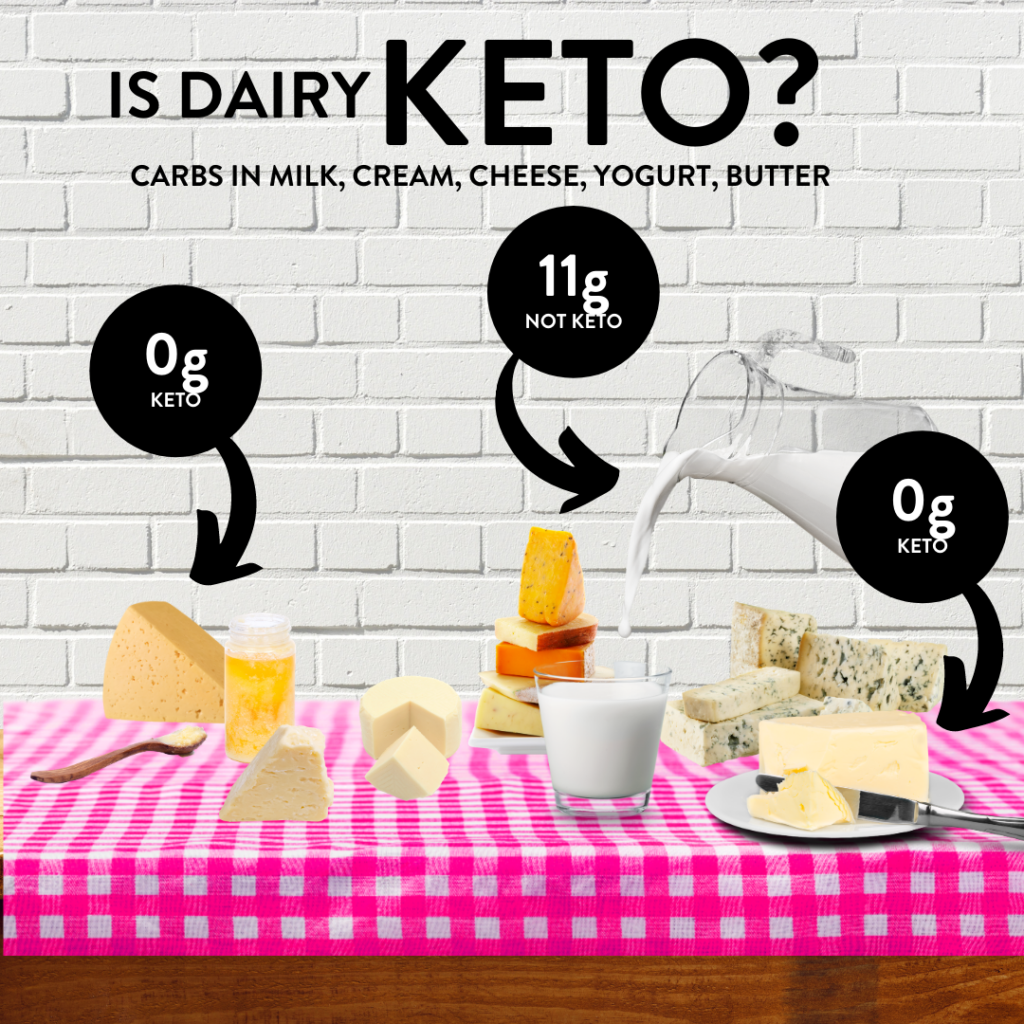
Dairy is everywhere. You would be surprised how many store-bought products contain some dairy. But on a keto diet, not all dairy products can support your efforts.
What Are Dairy Products?
Dairy products are all products made from animal milk. The most common animal used to produce milk are cows, goats, sheep, or buffalo.
Dairy products encompass anything primarily based on animal milk and include milk, butter, cream, yogurt, cheese, custard, or ice cream.
The per capita consumption of dairy products in the US was 653 pounds per year in 2019. This amounts to about 1.7 pounds per day per person.
In comparison, China has a per-capita consumption of only 50 pounds per year!
Note: Eggs are not a dairy product! The very definition of dairy excludes them because they are not milk products.
Is dairy keto? Well, there’s no simple answer to that question, so read on to learn all the details!
Is Milk Keto?
All animal milk is relatively similar in their composition.
They are mostly made of water (70% to 90%), lactose (a disaccharide, a carbohydrate molecule containing glucose and galactose), fat, protein, various vitamins and minerals, and a few enzymes.
Because of their high concentration of carbs, no animal milk is really keto-friendly unless taken in minimal quantities.
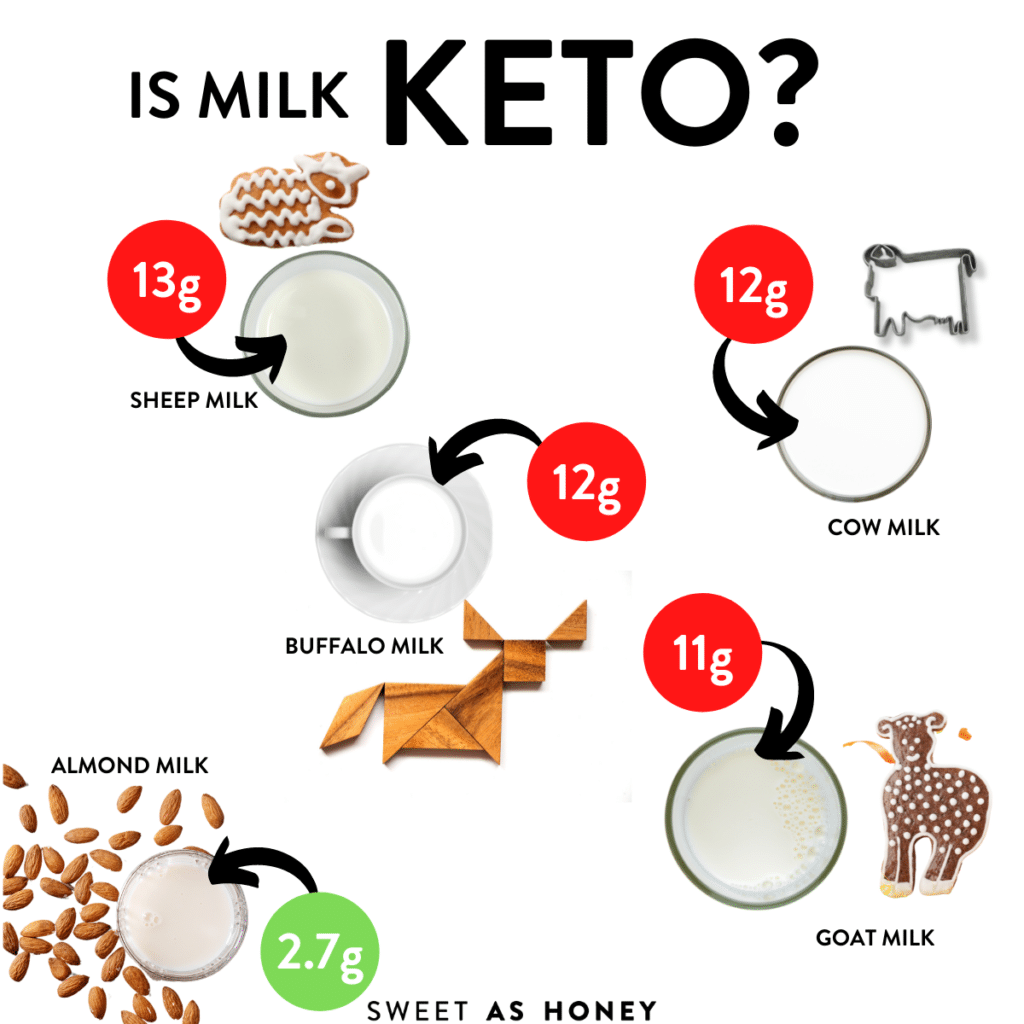
How Many Carbs In Milk?
The table below shows the net carbs content for the most common dairy milk per cup (240ml). Almond milk is added for comparison:
| Type of milk | Carbs | Fat | Protein | Calories |
|---|---|---|---|---|
| Regular Cow Milk | 11.4g | 7.8g | 8g | 146 kcal |
| Reduced Fat (2%) Cow Milk | 11.9g | 4.6g | 8.2g | 122 kcal |
| Low Fat (1)% Cow Milk | 12.7g | 2.3g | 8.3g | 105 kcal |
| Skim Cow Milk | 11.9g | 0.2g | 8.4g | 83 kcal |
| Lactose-Free Cow Milk | 11.4g | 7.8g | 8g | 146 kcal |
| Sheep Milk | 13.1g | 17.2g | 14.7g | 265 kcal |
| Buffalo Milk | 12.6g | 16.8g | 9.2g | 237 kcal |
| Goat Milk | 10.9g | 10.1g | 8.7g | 168 kcal |
All data comes from the FoodCentral database.
This table shows that all animal kinds of milk have a very similar net carbs content between 10 grams and 13 grams per cup. For comparison, one cup of almond milk has only 2.7 grams of net carbs.
As a result, if you are following the keto diet, you would have to stop using cow milk, sheep milk, goat milk, and even buffalo milk in your recipes.
Keto-Friendly Milk Alternatives
Even lactose-free milk isn’t keto-friendly because lactose-free milk does not have fewer carbs. it just has its lactose – which can trigger intolerance – broken down into galactose and glucose.
This is why so many of my keto recipes use plant-based milk alternatives instead, like Almond Milk or Coconut Milk, but make sure to buy unsweetened almond milk or unsweetened coconut milk!
Conclusion
Not all dairy products are your friends on a keto diet and milk is the one that is the least keto-friendly.
Cheese is generally fine. Butter is keto-friendly. Some yogurts are good in low quantity, and most creams are fine.
But milk needs to be avoided to reach all your keto goals!
Are there any other dairy products that you avoid on a keto diet? Comment below to share with everyone!
Posted In:
Disclaimer
The recipes, instructions, and articles on this website should not be taken or used as medical advice. The nutritional data provided on Sweetashoney is to be used as indicative only. The nutrition data is calculated using WP Recipe Maker. Net Carbs is calculated by removing the fiber and some sweeteners from the total Carbohydrates.
You should always calculate the nutritional data yourself instead of relying on Sweetashoney's data. Sweetashoney and its recipes and articles are not intended to cure, prevent, diagnose, or treat any disease. Sweetashoney cannot be liable for adverse reactions or any other outcome resulting from the use of recipes or advice found on the Website.
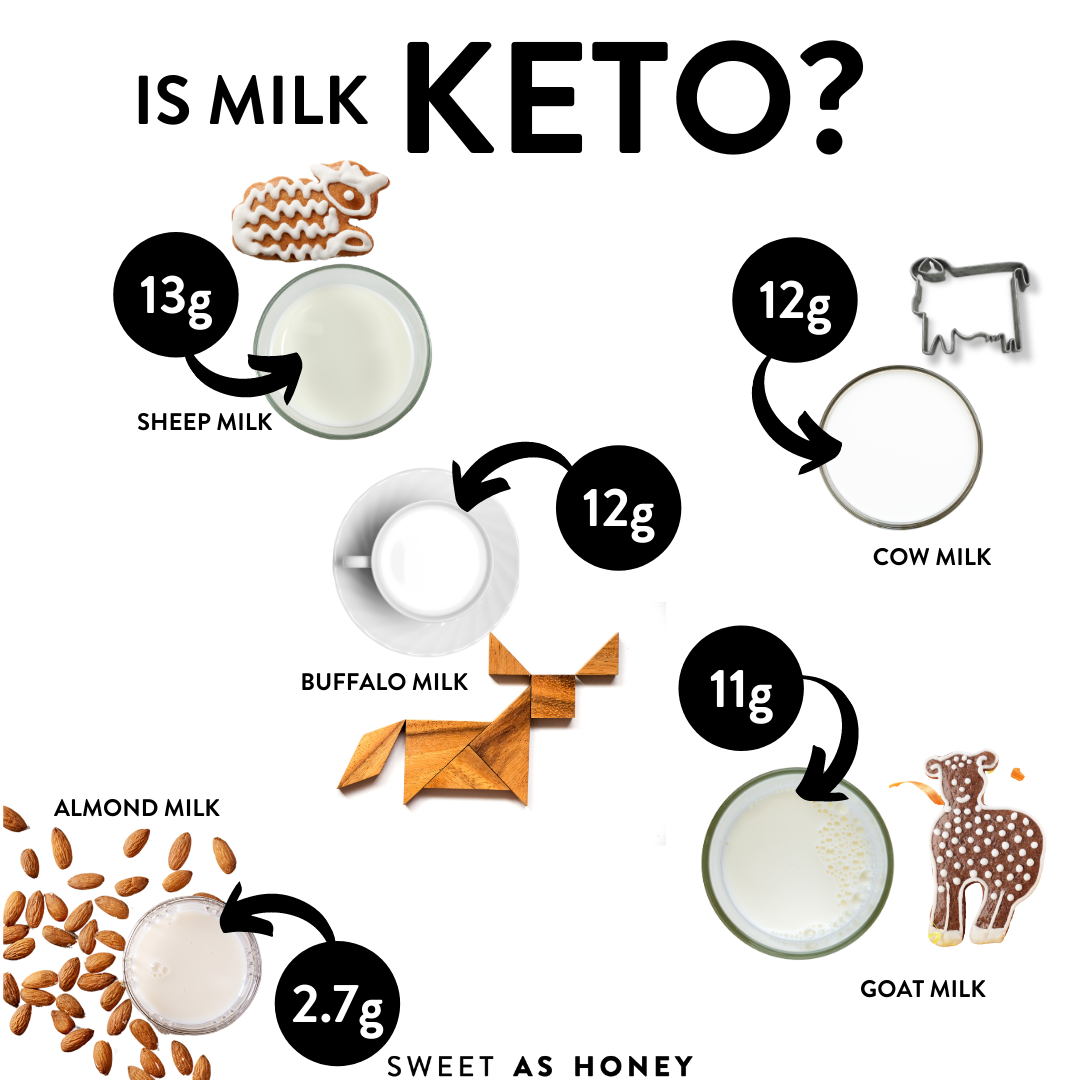
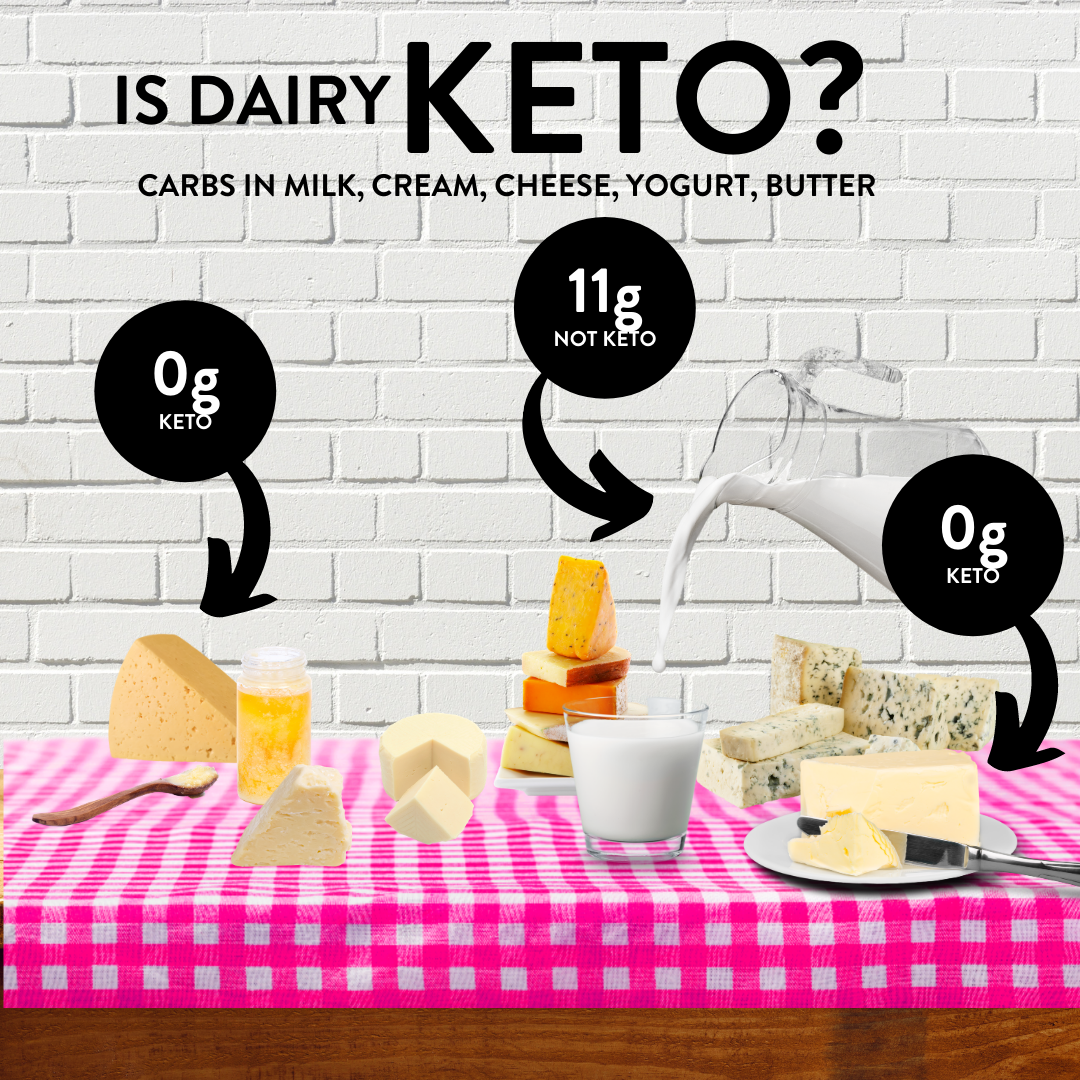

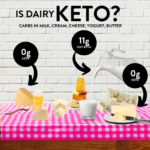
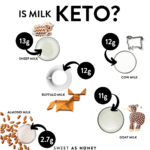
Share this post!
If you enjoyed this post, share it with your close ones!
Leave a comment
thank you for posting this helpful info!
Hi! What are your thoughts on the “Ultra” versions of milk? Two I know of are Fairlife and Organic Valley. They both claim 6 grams total sugar per cup. Thanks!
Hi Tina,
I have never tried these! From the looks of it, they seem to be ok-ish. They are still quite a bit higher in carbs than plan-based options.
But as always what matters in keto is the total quantity, so as long as you adapt your servings to their content it’s fine.
Just a note that the Fairlife Ultra is quite low in fat and high in protein. Even their whole milk has only 8g of fat for 6g of carbs and 13g of protein per cup.
Given that on Keto, you are aiming at a 5% Carbs, 75% Fat and 25% Fat macros, you might struggle to reach your macros with that much protein and that low fat.